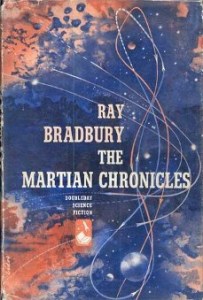 I am a “second-rate” short story writer.
I am a “second-rate” short story writer.
Why would I say that? “Exhibit A” shows the answer. It is a certificate documenting my second-place finish in the short story writing contest of the East Texas Christian Writer’s Conference. I have never won a short story competition but have finished in second place.
I have written and even sold short stories. Over the years, I have entered short story contests. I am still seeking that elusive “first place” in a short story contest.
In my quest to win a contest, I have become a student of the short story form. Here is what I call “One Great Way to Write a Short Story.” It begins with planning.
PLANNING IS ESSENTIAL
I would never start writing a short story without at least a rough outline to tell me where I am going. I recommend jotting down the answers to a few questions. The answers provide the framework for where the story is going.
The first step in writing a short story is a planning exercise. Plan your short story in advance by answering questions in three areas:
- The subject – Who is the main character? What is the problem?
- The story –What is the character’s motivation to solve the problem? What actions occur to solve the problem?
- The resolution – What are results of the character’s acts to resolve the problem? What change does the character undertake because of that action?
HOW I DO IT – STEP BY STEP
- The Character
I decide about whom I am going to write. You have one central character in the story. It might a soldier returning home. It could be about an astronaut. It might be about a businessperson. The reader will identify with that person.
- The Problem
What is it that the main character struggles with that he or she may not have an instant need to resolve? It is a problem the character has had for a while, but has not had an immediate need to solve. An example would be if I were writing about a businesswoman who obtained an executive position using a falsified resume. She may not have an immediate need to deal with the issue.
- The Motivation
Why does the main character decide to solve the problem? I’ll use the businesswoman with the falsified resume as an example.
It could be that she has accepted a position on the board of directors for a prominent community organization like the United Way. The local media decides to do a feature story on her background. In this case, I need to put in the appropriate backstory – her claiming to have a prestigious Ivy League graduate degree when she had dropped out of college before obtaining her undergraduate degree. Now she is in a position that requires an accredited four-year college degree as well as MBA. She realizes she is about to be found out with embarrassment to herself, her employer, and maybe she could even have to resign.
- The Action
What does the main character do to solve the problem? What does she do to correct the situation? Maybe she confesses to her company’s president or she may try to resign quietly from board of directors for a prominent community organization for personal reasons trying to avoid being exposed and hoping it will just go away.
- The Result
What happens because of the character’s attempt to solve the problem? Maybe she tells the president and he fires her. The employer takes legal action against her demanding restitution from her for fraudulently obtained wages. He takes her to court and wins. She is required to make restitution of tens of thousands of dollars and has her reputation destroyed.
- The Change
Perhaps at this point the character struggles financially, loses her large home and country club lifestyle. Maybe her friends desert her. She is unable to get a job because of her lying on the resume. She could go back to school and complete the education she had claimed. Maybe she becomes an advocate for ethical business practices.
CONCLUDING THOUGHTS
- Remember the main character needs a good reason for what they are doing. They need to act consistent to who they are.
- You need to set up every incident in the story. If the character obtained a high position using a falsified resume, make sure you set this up by doing a flashback or remembrance where she is sitting typing the resume and then clicks submit thinking no one ever checks a resume.
- If you bring it up you must conclude it. This refers to conflict in the story. If you have any conflict, you need to resolve it prior to ending the story.
Once you have planned your short story you will be able to write it. My guess is by following these simple principles you too can write a short story. Moreover, just maybe it will be “second-rate” or even better.
The article is written by: Jimmie Aaron Kepler. I originally appeared in the September 17, 2014 “Author Culture” Blog at: http://authorculture.blogspot.com/2014/09/one-great-way-to-write-short-story.html






